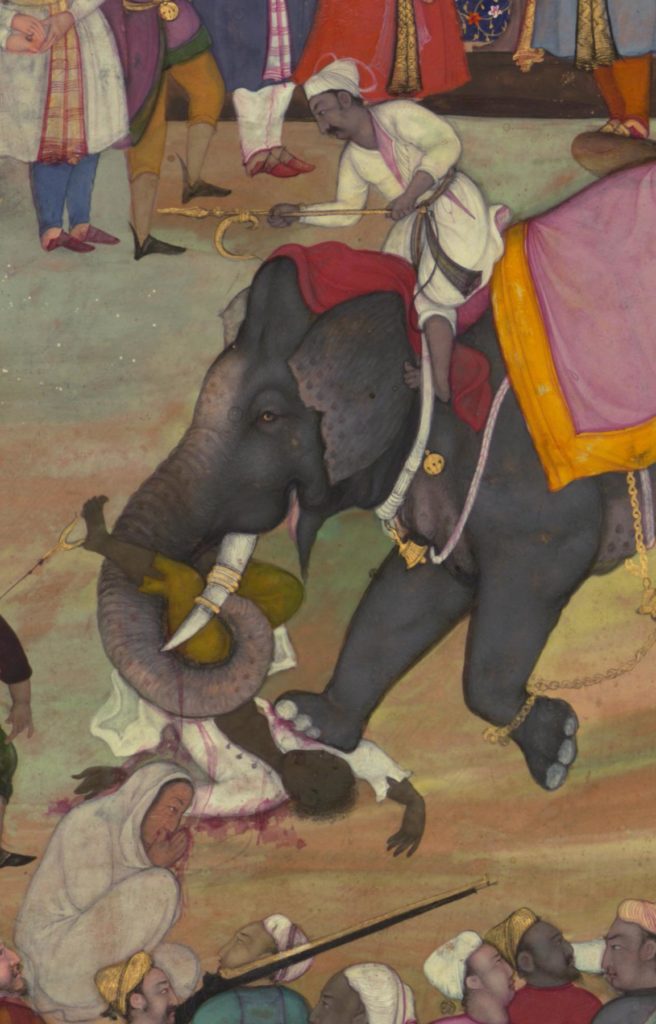– Joaquim Magalhães de Castro
Despite this first defeat, the Mughals insisted on the attack, now with extra caution. The plan implied new negotiations. They were ready to make an offer to the besieged an honorable capitulation.
Believing in the good faith of Muslims, the prior of the Augustinians presented himself as a mediator, but the Mughals refused and demanded the presence of “people of greater stature.” This was done, and four captains were presented as negotiators.
As soon as they entered the enemy tent, Babur Khan, captain of the Mogul troops, repeated his request to João Cabral: he wanted all the slaves present in the city. Wisely, the Portuguese delivered them about ninety slaves, but the mughals were not satisfied, and, mockingly, they exclaimed: “Send also the black women, the talented cooks, the ballerinas, the confectioners, the seamstresses, etc.” Well, it is easy to guess what the self called liberators really wanted…
Faced with the refusal of the Portuguese, the Mughals, probably in an attempt to buy time, asked people of higher caliber to continue to negotiate. And there we see again in action Father Cabral, included in the batch of six religious (including the above mentioned Augustinain prior) in charge of the task.
But the Mughals wanted more. Now they demanded the inhabitants of Hooghly to hand over half of their goods and all the cash. Now, such a proposal sounded more like a surrender than a fair deal. For this reason, they asked permission to leave, but they were not allowed to do so, as Cabral explicitly states: “we were all put in chains.”
In order to scare them, the Mughals brought an elephant – one of those animals used in the public executions, trained to step on the bodies of the victims after lifting them up in the air with their trunks and shake them violently. The scenario could not have been more terrifying! Among the prisoners, Cabral would be tasked to act as the messenger, in this case, to his superior Manuel de Azevedo.
The conditions were the following: either the Hooghly residents unconditionally surrendered, handing over all their wealth, or else the elephants would kill the captives. Faced with such an ultimatum the Portuguese could only fight to the limit, although on the other side there awaited them a contingent of thousands of men and one hundred and twenty cannons. It was a month and a half of Mogul war effort in vain.
In the process, the Augustinian monastery would be reduced to ashes and the Jesuit House was totally sacked. The city center, although subject to constant bombing and mine explosions, stoically resisted.


 Follow
Follow


